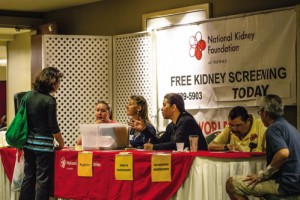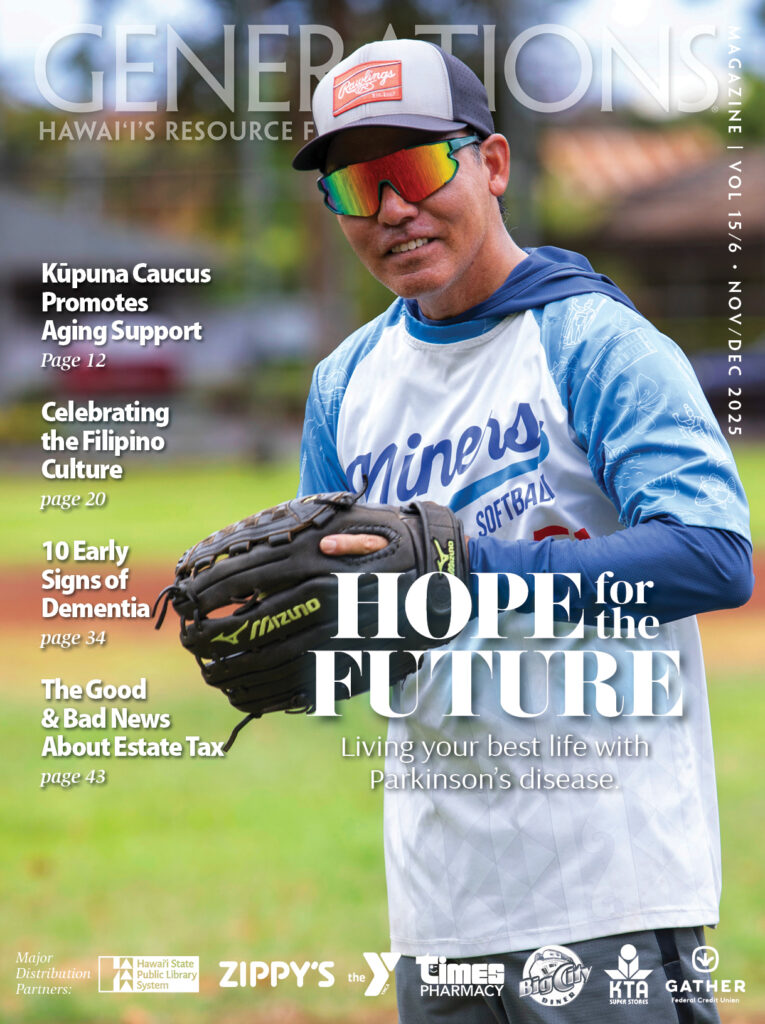 What would you do if you were told you might be sick, or might become sick, even though you feel fine, have no symptoms of which you are aware, and think that you are generally in “good health?” Would you bother to do anything at all under those circumstances? Would you tend to think that you will deal with a potential health problem if and when you begin to notice some symptoms? After all, we’re all generally pretty busy, and dealing with something that “might” become an issue could easily be filed in the “Someday, Maybe” file.
What would you do if you were told you might be sick, or might become sick, even though you feel fine, have no symptoms of which you are aware, and think that you are generally in “good health?” Would you bother to do anything at all under those circumstances? Would you tend to think that you will deal with a potential health problem if and when you begin to notice some symptoms? After all, we’re all generally pretty busy, and dealing with something that “might” become an issue could easily be filed in the “Someday, Maybe” file.
A New Study is Published
Unfortunately, for many Americans this scenario is, or will become, a reality — and many of us are unaware that a problem may exist. According to a new analysis published in the American Journal of Kidney Disease, nearly six of ten Americans will develop kidney disease in their lifetime. That’s not a misprint; a new study completed by a team of researchers at Johns Hopkins University determined that the lifetime risk of moderate kidney disease for Americans is 59.1 percent. That is substantially higher than the lifetime risk of having a heart attack, diabetes or invasive cancer (which are significant illnesses in their own right). According to the analysis, “Chronic kidney disease (CKD) is rising in prevalence, increasingly expensive, and associated with a high degree of morbidity and mortality.” (Am J Kidney Dis. 2013;62(2):245)
For those of us living in Hawai‘i, the prospect of a similar lifetime risk is even more daunting. While the Johns Hopkins University study did not make a state-by-state breakdown, it is generally known that Hawai‘i has a higher incidence of Chronic Kidney Disease than is found on the Mainland. At least in part, that is because CKD is not an equal opportunity disease. For reasons that are not yet clear, certain ethnic groups have a higher incidence of the disease than do other ethnic groups, including (in no particular order) Hawaiians and other Pacific Islanders, Asians, including Filipinos, Japanese, Chinese and others, African Americans and Latinos. Given the ethnic composition of our local population, it is reasonable to expect that the lifetime risk of CKD for people living in the Islands will be even higher than reported for the nation as a whole as represented in the Johns Hopkins University study.
The new analysis, the first of its kind for kidney disease, also called attention to the very high risk that women have of developing moderate kidney disease, in part because moderate kidney disease risk increases dramatically starting at age 60. Women have a tendency to outlive men, making kidney disease a particular concern of women who might expect a long life.
Additionally, diabetes and high blood pressure are the leading causes and risk factors, yet many people don’t link these with kidney disease. Even those with diabetes and high blood pressure aren’t always tested for kidney disease. High blood pressure can cause kidney disease, and in turn kidney disease can cause high blood pressure, so there is a cyclical relationship.
What You Can Do to Safeguard Your Kidney Health
Clearly, Chronic Kidney Disease is a serious, high-risk problem. Fortunately, having a problem and dealing with a problem are not necessarily the same thing. In the case of Chronic Kidney Disease, for many people — even those who may be in the early stages of the disease—there are things that can be done to help.
A good first step you may want to take is to learn whether or not you may have kidney disease, even if you “feel fine” and consider yourself to be “in good health.” According to the National Kidney Foundation, the awareness level of most people is really low. It is estimated that fewer than 50 percent of people with advanced kidney disease (stage 4) are aware of their disease. It’s safe to say that most of us who may be in the early stages of kidney disease are also unaware of our true health condition. As a result of this latest study, the foundation is now calling on healthcare professionals and adults at risk to take action. People at risk for kidney disease should have an annual screening. Those who are generally considered to be at risk include people with diabetes, high blood pressure, and those over 60 year of age or with a family history of kidney failure.
Your family physician can order simple urine and blood tests to check for the disease. A urine test is for albumin — a protein — which indicates early kidney damage. The blood test measures kidney function. Filtration of less than 60 indicates kidney disease — less than half the filtration capacity of healthy adults.
Early detection allows early intervention, which can help prevent progression of the disease and the risk of complications, such as heart disease and stroke. Early detection can also improve patient safety in terms of appropriate medication use for those with reduced kidney function.
Other things an adult can do to reduce the risk of kidney disease include the following:
- Control blood pressure and blood sugar
- Maintain proper weight through healthy diet and regular exercise
- Quit smoking
- Avoid excessive use of pain medication that can harm the kidneys, such as ibuprofen.
Once kidney disease is advanced — when urine tests for kidney damage show large amounts of protein in the urine and blood tests measuring kidney function are less than 30 — a nephrologist can provide the expert care that is needed.
At this stage, diet is critical and the help of a clinical dietician is helpful.
Be proactive. Don’t wait until you don’t feel quite right to take the tests. And, if you have any of the risk factors mentioned in this article, check with your family doctor. Early detection will enable you to have a better quality of life and hold the disease in check.
Let Us Help You and Your Caregiver
For all of us, having better awareness of our health and nutrition is key to living an enriching lifestyle. At the National Kidney Foundation of Hawai‘i we try to make this easy. Our website, Facebook page and eNewsletters are filled with information that will keep you up to date. We encourage people to join the Willie K. Challenge, which encourages us all to eat better and exercise. Our programs department regularly holds public health and kidney screening events that inform people and measure a person’s kidney-related health.
If you are a patient, family member or a caregiver, we offer support groups to help you cope with the lifestyle surrounding kidney disease. Members meet to discuss important treatment issues, learn from the experience of others and become active in managing kidney disease.
Caregivers and patients may also want to participate in our Peer Mentoring program, where those who have dealt with the challenges of chronic kidney disease address your questions and concerns.
Our K.I.W.I. program is open to patients and caregivers who want to learn about lifestyle issues such as nutrition and exercise, how to shop for kidney-friendly foods and prepare meals for kidney patients.
To join a program, become a volunteer or simply keep in touch, call Jeff at 589-5976 or email jeff@kidneyhi.org.
For more information, visit the National Kidney Foundation of Hawai‘i at www.kidneyhi.org, or the national website at www.kidney.org.



Leave a Reply